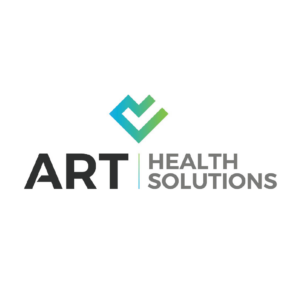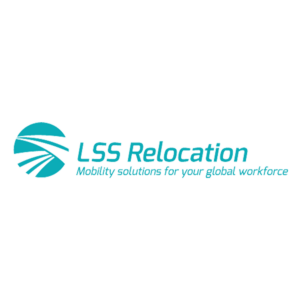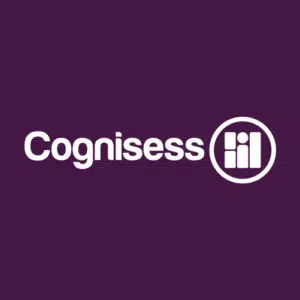The HR AI Frontline
15 June 2023

Story by
Amit Masram HR Technology Expert
Amit Masram is an HR Technology expert and a multiple award-winning global HR Leader with over 17 years of experience across Europe, North America, and Asia. He mentors tech start-ups and advises CEOs and founders on digital HR transformation, the HR technology roadmap, AI and automation.
He regularly speaks at global conferences on the Future of Work, HR Tech and AI, and the workplace and employee experience. Amit is on the jury of several leading business awards and competitions and enjoys deep connections in the global technology communities.
Q: Where are you seeing HR using AI and how extensive is its use?
A: Businesses operate in a highly uncertain environment today. A number of macroeconomic factors exert influence on the organisation reshaping priorities and needs. Factors including potential slowdown, talent shortage, skills gaps, changing policy landscape, productivity challenges, and advancement of technology are changing how organisations and societies operate. With this context, the use of AI in the Human Resources department differs based on the organisation, its current stage, and where it wants to go. It’s fair to say that organisations now think about the employee experience and how this EX can be influenced positively across various stages of the employee life cycle based on changes to employee needs and behaviours. Other popular use cases include leveraging AI for employee onboarding, pay, and benefits administration, managing employee data and records, and query management/ticketing.
Highly evolved and sophisticated organisations use it for employee retention, predictive modelling, and scenario building to mitigate internal and external risks. Organisations also use AI-based development tools and mirror challenging and real-life business scenarios to create readiness in their high performers and executive leaders for leadership roles.
Q: Do you think AI is something HR should be worried about or are the advantages greater?
A: Existing evidence suggests that AI holds a lot of promise for transforming HR function value proposition to business, creating new bandwidth for HR through eliminating repetitive, time-consuming tasks, and raising overall efficiency. AI’s application and its practice in different aspects of Human Resources are still evolving. It is clear that the application of AI needs specific context and alignment to specific business outcomes to justify the investment in terms of time and budget. For instance, using chatbots to answer customer queries is popular in organisations, however, the ROI needs to think through based on the nature of the business, its current stage, and evaluating “needs” Vs “wants”. Another aspect is the need to have a strong governance framework for devised algorithms. This is because AI’s fundamental driver is clean and high-quality data. This was well highlighted by the case of Amazon which had to discontinue the AI recruiting tool that showed bias against women. Human behaviour is complex and often unpredictable, as a result, the use of AI needs to factor in the pros and cons based on specific scenarios.
Q: What do you consider to be the best approach to considering and implementing AI-related technology?
A: Broadly, there are multiple factors for consideration before embarking on a journey to implement AI-related technology. A good starting point is to understand the current needs of the organisation, and function leading to a clear articulation of the problem statement. A good and well-defined problem statement more or less leads to the potential outcomes expected. For the AI model to work well, clean and quality data is vital. Another aspect to consider is whether the use of data is ethical and safe. For example, for a healthcare tech company in the UK, the legal frameworks covering how patient data must be looked after and processed are the Data Protection Act (DPA) 2018. Consequently, there must always be a valid lawful basis for the collection and processing of data if let’s say we want to develop a predictive tool of some sort for patients of certain profiles. If there is a valid lawful basis, factors to evaluate and decide the right AI tool or a combination of approaches need to be identified and agreed upon. Then, it’s a decision between whether it’s feasible to build the solution in-house or to buy dependent on commercial viability. Lastly, we need to think about the governance framework which defines overall ownership and accountability.
Q: What do you think the future will hold in terms of technology in HR? Are there radical changes ahead?
A: The workplace has undergone a remarkable change and will continue to evolve influenced by different working models (fully office, fully remote, hybrid) the emergence of preferences driven by different employee groups, and their needs have resulted in presenting choices for modern employees.
Flexibility and finding greater purpose in work will create more opportunities for technology to permeate most aspects including the HR function itself. The proliferation of technology in Human Resources is still in the early stages and expecting too much is premature given that governance and ethics are still much debated and unresolved. The Human Resources profession is complex as it deals with human emotions, actions/reactions, and real situations. A complete replacement is highly unlikely!
Q: How much IT knowledge and skill should an HR professional have?
A: There is a serious need to relook at the current skills and capabilities in the HR profession, from the point of view of business leaders. Advancement of technology, adoption of automation, and abundance of need for digitalisation have created tremendous opportunities for HR to pivot and make changes to their approaches and how they operate to remain attractive and relevant. HR tech tools for delivering and crafting customised career experiences, employee wellness programs, and predictive data analytics all need a strong understanding of core IT concepts, logic, data sets, and mathematical ability. Knowledge and upskilling in HR systems, macros in Excel to apply them in workplace scenarios, and tweak reports to get desired analysis, aligned to the needs of the business leaders. This will help HR redefine its value and develop a better business partnership.






